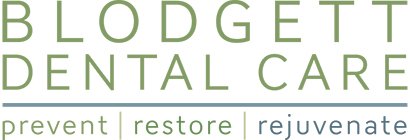Did you know that Listerine was once marketed as a surgical antiseptic and powerful floor cleaner? What you don’t know about mouthwash might surprise you. Especially when it comes to your dental health.
In my latest video Mouth Wash Is Bad For You I share my thoughts on Mouthwash. Please keep reading to learn more about the history of mouthwash, my thoughts on whether or not mouthwash is bad for you, and alternatives to commercial mouthwashes.
One of the biggest dangers of using mouthwash regularly is that it can make you feel like your mouth is clean when it isn’t. We all know from experience that if you rinse your car with a strong hose spray, it won’t be effective at removing all of the dirt and grime that is attached. A truly clean and healthy mouth requires regular brushing and flossing, just like your car requires thorough scrubbing to get clean! If you’re using mouthwash as a substitute for good oral hygiene, you’re putting yourself at serious risk for gingivitis, cavities and other dental issues.
Mouthwash Doesn’t Discriminate
Your mouth is teeming with bacteria. It’s true. And it’s a good thing. There are more bacteria in your mouth than there are people on Earth. And a huge number of them actually benefit you by protecting against the more dangerous bacteria.
 When you used an antibacterial mouthwash, it kills all kinds of bacteria, even the good ones! This can be the opportunity that hazardous bacteria need to take over and start an infection. This is known as a “rebound effect.”
When you used an antibacterial mouthwash, it kills all kinds of bacteria, even the good ones! This can be the opportunity that hazardous bacteria need to take over and start an infection. This is known as a “rebound effect.”
Another side effect of bacteria loss has reduced the production of nitrites (which help your blood vessels to expand and contract efficiently). A Swedish study linked lower nitrite production from antibacterial mouthwash to an increased risk of cardiovascular disease.
Photo: Umberto Salvagnin on Flickr
The Dangerous Cycle of Alcohol-Based Mouthwash
If you suffer from dry mouth or ulcers in your mouth, using an alcohol-based mouthwash can make these problems worse. These types of mouthwash actually dry out the tissue in the mouth as they evaporate, causing more dry mouth and irritating sores in your mouth.
You may also find that soda, red wine, coffee and tea stain your teeth more easily if you use an alcohol mouthwash. This is because your teeth and gums are losing their protective shield that’s being washed away by the mouthwash.
This loss of protective mucus and saliva can actually lead to an especially vicious cycle where your teeth build up plaque more easily, decay faster and cause bad breath, leading you to use more mouthwash, which just makes the problem worse.
The Dangers in Over the Counter Commercial Mouthwashes
Beyond the issues I’ve already discussed, there are some fundamental problems with the over the counter commercial mouthwashes that you can buy in the drugstore, like Listerine and Scope. In order to make them shelf-stable, manufacturers add acidic stabilizing agents. These are absolutely terrible for your teeth. The acid will actually eat away at your tooth enamel, weakening your teeth and making them more susceptible to decay..
Then there are the artificial food dyes that are used in almost all over the counter mouthwashes. Cool Mint Listerine, to give one example, contains the dye Green 3, which has been linked to bladder cancer. Original Scope contains Yellow 5, made from a derivative of coal tar, and Blue 1, which has been connected to cancer in some animal tests.
CariFree Rinses
There are actually some great pH balancing rinses on the market, including the CTx3 rinse from CariFree. The best part about CariFree’s rinses is that they include no dangerous additives or ingredients and some of their rinses have fluoride to help prevent cavities, too!
Check out their simple recipe: xylitol, an all-natural plant-based sugar-free sweetener, fluoride for remineralization and cavity prevention, and a bicarbonate-based pH neutralizing agent. They’re really great!
My Final Word on Mouthwash
Avoid Scope, Listerine and the other commercial mouthwashes. They’re acidic, contain potentially cancer-causing chemicals, and are just plain bad for you.
Simpler, gentler, homemade rinses and those from CariFree, however, can soothe your mouth and balance your pH, among other benefits. CariFree’s rinses, for example, can help prevent cavities, too! For improved gum health, you might also consider adding oil pulling to your home dental care routine. It can be an enjoyable, natural method of detoxifying your body.
And don’t forget to brush and floss regularly!
Do you have questions about mouthwash? Ask me at your next dental cleaning & exam appointment.


Recent Comments